Let’s face it—most people don’t want to hear about the guy who cleaned out your gutters over the weekend. You’d rather chat about the sweet listing in the heart of downtown or that charming little place by the beach. B
As a real estate pro, you know that SEO isn’t merely a tool but a lifeline for your business. It drives potential clients to your listings, boosts your brand’s visibility, and keeps you ahead of the competition.
If you’re still wondering why you should care about real estate SEO, here are a few stats to consider. First, 93% of online experiences begin with a search engine, and second, 43% of all homebuyers start their journey online. This means that your website and listings need to be at the top of search results where these homebuyers are looking.
As we dive into this comprehensive guide, let’s tackle real estate SEO like a pro. From understanding the unique challenges of our industry to mastering the intricate dance of Google algorithms, this roadmap will equip you with the knowledge and strategies needed to not just compete but dominate the real estate digital landscape. Ready to elevate your game and capture more leads? Let’s get started!
Understanding User Intent for Effective Real Estate SEO
First things first, let’s break down the concept of user intent. Understanding what your potential clients are searching for is critical to crafting content that resonates with their needs. In the real estate world, this means anticipating the questions and concerns of buyers and sellers at every stage of their journey.
Think about it: a first-time homebuyer starts their search with broad queries like “homes for sale” or “buying a house tips.” As they gather information, their questions evolve to more specific concerns, such as “how much can I afford?” or “best neighborhoods in [city].”
To effectively target these varied intents, your content strategy must be as dynamic as your clients’ needs. Start by researching the types of queries your audience is making. Keyword research tools like Ubersuggest and Semrush can provide insights into what people are searching for. Identify high-volume, relevant keywords, and map them to different stages of the buyer journey. For example, early-stage buyers might search for educational content on market trends or neighborhood comparisons. In contrast, those closer to a decision might seek out property listings, virtual tours, or agent bios.
By aligning your content with user intent, you can create a content strategy that not only attracts traffic but also nurtures leads. Provide answers to your audience’s questions, and you’ll be viewed as a helpful resource rather than just another agent trying to make a sale. This approach fosters trust, which is a key ingredient in converting leads into clients. So, take the time to understand your audience’s journey and craft your content to guide them along the path from inquiry to closing. The result? A more engaged audience, higher conversion rates, and a reputation as the go-to expert in your market.
1. Choosing the Right Keywords for Your Real Estate Content
Now that we’ve covered why understanding user intent is vital let’s dive into the nuts and bolts of keyword research. At the heart of SEO lies a well-researched keyword strategy, and when it comes to real estate, a mix of broad and local keywords will serve you best.
Think of broad keywords as your first touchpoint with potential clients. These are the terms they use when they’re just starting to explore their options. For instance, “homes for sale” is a broad keyword that might attract a wide audience, including those just beginning to think about buying a home and seasoned investors looking for new opportunities. However, the competition for these keywords is fierce, making it crucial to pair them with more specific, local keywords.
Local keywords are where the magic happens. They target potential clients in your geographic area who are ready to act. Instead of “homes for sale,” consider “3-bedroom condos in [Neighborhood].” This level of specificity means you’ll be reaching buyers who are further along in their decision-making process and who are more likely to convert. Additionally, local keywords can help you stand out in a crowded market, positioning you as the go-to expert in your community.
But don’t stop there. Real estate keyword demands are constantly evolving, influenced by shifting market conditions and changing buyer preferences. To stay ahead, regularly update your keyword list to reflect these changes.
For instance, during a seller’s market, keywords focused on home values and equity might gain traction, while buyer-centric keywords might see a dip. By staying attuned to these shifts, you can ensure that your content remains relevant and continues to attract the right audience.
- Keyword research tools like Ubersuggest, Ahrefs, or Google Keyword Planner can provide insights into current trends and search volumes.
- Analyzing your competitors can also give you a sense of what’s working in your market and help you identify gaps where you can shine.
- Consider seasonal trends and how they might affect search behavior. For instance, homebuying inquiries typically spike in the spring and summer, making it an ideal time to ramp up your SEO efforts.
By taking a strategic approach to keyword research and remaining flexible, you can create content that not only attracts traffic but also converts leads. Remember, the ultimate goal of SEO is to drive business results, so focus on keywords that align with your clients’ needs and your business objectives. With the right keywords and a little effort, you’ll be well on your way to dominating your local real estate search results.
2. Creating Diverse, Engaging Content that Converts
In the realm of real estate SEO, creating varied content is essential. This approach not only engages a broader audience but also addresses the diverse needs of your potential clients. As buyers and sellers journey through the complex real estate decision-making process, they seek different types of content at each stage. By offering everything from educational articles to high-quality videos and virtual tours, you can position yourself as a comprehensive resource, the one-stop shop for all things real estate.
But content creation alone isn’t enough. You also need to ensure your content is SEO-friendly and discoverable. Start by incorporating relevant keywords into your titles, headings, and meta descriptions. This helps search engines understand the context of your content and match it with user queries. Additionally, use alt text for images to improve accessibility and provide additional context for search engines.
One often-overlooked aspect of content SEO is readability. No matter how well-researched or insightful your content is, it won’t resonate with your audience if they can’t easily digest it. To enhance readability, use short paragraphs, clear headings, bullet points, and white space. Aim for a conversational tone that feels friendly and approachable. Tools like Hemingway or Yoast can help you refine your content for maximum impact.
Remember, creating user-centric content is key. Focus on providing value to your audience by answering their questions and solving their problems. Use language they understand, avoid jargon, and always keep their needs front and center. By consistently delivering high-quality, SEO-friendly content, you’ll not only attract traffic but also establish yourself as a trusted authority in your market.
3. Mastering On-Page & Technical SEO for Real Estate
Beyond crafting great content, mastering on-page and technical SEO is critical. These behind-the-scenes elements ensure your content is easily accessible to search engines and, ultimately, your audience.
Start with the basics of on-page SEO: titles, meta descriptions, headings, and keywords. Use descriptive, keyword-rich titles that accurately reflect your content. For example, instead of “House for Sale,” use “Charming 3-Bedroom House for Sale in [Neighborhood].” A good title grabs attention and helps search engines understand the context of your page.
Next, focus on the structure of your content. Use clear headings (H1, H2, H3) to break up your text and make it scannable. Incorporate your keywords naturally within these headings to signal to search engines what your content is about. Don’t forget to add alt text to your images, which provides context for visually impaired users and helps search engines index your images properly.
Now, let’s talk about technical SEO, which addresses how your website’s underlying code impacts search engine visibility. Start by ensuring your site is mobile-friendly, as more than 50% of all website traffic comes from mobile devices. Google also uses mobile-friendliness as a ranking factor, so this is non-negotiable.
Site speed is another critical factor. A slow-loading site can frustrate users and hurt your search rankings. Use tools like Google PageSpeed Insights to identify issues and get suggestions for improvements.
Don’t underestimate the power of good navigation. Make sure your website is easy to navigate and all pages are reachable within a few clicks. A clear, logical site structure helps users find what they need and makes it easier for search engines to crawl and index your content.
By paying attention to on-page and technical SEO, you can ensure that your content is not only compelling but also discoverable. This combination is key to driving organic traffic and generating leads from search engines.
Mastering Keyword Clustering & Content Silos
Keyword clustering and content silos are like the peanut butter and jelly of SEO—they just work. These strategies help you create organized, comprehensive content that search engines love. And the best part? They’re easier to implement than you think.
Start by grouping related keywords into clusters. For example, if you’re targeting “moving to Chicago,” create subclusters around related topics like “Chicago neighborhoods,” “Chicago school districts,” and “Chicago transportation.” Next, create pillar content for each cluster. This is where the magic happens—by creating a main pillar page and linking to detailed subtopic pages, you’ll create a content hub that provides a complete resource for your audience.
Pillar Page Example
Here’s a quick breakdown of what a “Moving to [Your City]” pillar page might look like:
- Introduction: Set the stage and explain what the guide will cover.
- Neighborhood Guides: Detailed look at different areas, including pros and cons.
- School Districts: Overview of local schools, test scores, and parent reviews.
- Public Transportation: Information on buses, trains, and commute times.
- Conclusion: Wrap it up and invite readers to get in touch with questions.
4. Leveraging Local SEO to Dominate Your Market
Ready to dominate the local market? Local SEO is the secret sauce that will put your business on the map—literally. You want to be the guy your neighbor calls when his pipes burst. That’s the power of local SEO.
Google Business Profile & Local Directories
Claim your Google Business Profile (formerly Google My Business) and ensure your Name, Address, and Phone (NAP) information is consistent across all platforms. Don’t forget to add your hours, photos, and service areas to make your profile as robust as possible.
Leverage local industry directories like Zillow and Realtor.com to reinforce your local relevance and authority. These backlinks signal to Google that you’re a trusted resource, which can boost your rankings.
Local Keywords & Location Signals
Incorporate city names, neighborhood attributes, and local landmarks in your titles, headings, and content. For example, instead of writing a blog post about “top five homes in Miami,” title it “Top Five Luxury Homes in South Beach, Miami.” This makes your content more relevant to local searchers.
Use location-based schema markup, citations, and strong internal linking to strengthen local signals. This helps search engines understand the geographical context of your content, which boosts your local SEO.
5.Off-Page SEO & Backlink Building
Link building is like a popularity contest, but instead of getting votes, you’re getting endorsements from other websites. High-quality backlinks can skyrocket your search engine rankings and increase referral traffic. Here are some effective link-building strategies:
- Guest blogging: Offer to write high-quality content for other real estate blogs in exchange for a link back to your site.
- Influencer collaborations: Partner with local influencers or bloggers to create joint content that includes links to your website.
- Press features: Get featured in local newspapers, magazines, or online publications by pitching compelling stories or expert insights.
Building relationships with other bloggers, journalists, and influencers in your industry can open up new opportunities for link-building. Attend local networking events, join real estate forums, and engage with others online to expand your reach.
Earn High-Quality Backlinks
Seek partnerships with local newspapers, blogs, business directories, and community organizations. Offer expert commentary on market trends to local media to foster backlinks and boost your brand recognition.
6.Social Media for Branding & Traffic
Engage your prospects where they are—on Facebook, Instagram, and LinkedIn. These are the top platforms for realtors. Post images, virtual tours, success stories, and client testimonials, and interact with potential leads in comments and DMs. A strong social media presence can indirectly bolster your SEO by increasing brand awareness and earning natural backlinks.
Encouraging Reviews & Testimonials
Did you know 84% of people trust online reviews as much as personal recommendations? That’s a huge endorsement for your business, and it’s absolutely free. How do you earn these golden client testimonials? Read on.
Client Feedback as Social Proof
Prompt satisfied buyers and sellers to leave reviews on your Google Business Profile, Yelp, or Zillow. Positive reviews and star ratings enhance trust and can improve local search rankings. Don’t be shy—ask for that five-star rating!
Showcasing Testimonials On-Site
Highlight client stories and successes on your website. These build credibility and reassure prospects that they’re in good hands. Use plugins like WP Customer Reviews or EmbedSocial to display testimonials beautifully and easily.
7. Maintaining Consistency in Content & Keeping It Fresh
Consistency is key when it comes to SEO. Regularly updating your website with fresh, high-quality content signals to search engines that your site is active and authoritative. But how do you maintain consistency without overwhelming yourself?
Start by creating a content calendar. Plan out your content in advance, including blog posts, social media updates, and email newsletters. This will help you stay organized and ensure you’re consistently delivering valuable content to your audience.
Don’t be afraid to repurpose and update existing content. For example, take an old blog post and update it with new data or insights, and give it a fresh title and republish it. This not only saves time but also provides added value to your readers.
And remember, quality is always more important than quantity. Focus on creating content that genuinely helps your audience and meets their needs. Whether it’s a detailed neighborhood guide, a video tour of a new listing, or a quick social media update, make sure it’s relevant, engaging, and informative.
8. Utilizing Analytics to Fine-Tune Your SEO Strategy
To effectively optimize your real estate website, you must leverage analytics. Understanding how your website performs and how visitors interact with your content is essential to refining your SEO strategy and driving more leads. This is where Google Analytics comes in.
One of the first things to set up in Google Analytics is conversion tracking. This feature allows you to monitor specific actions visitors take on your site, such as filling out a contact form, signing up for a newsletter, or scheduling a showing. These conversions are your end goal, so knowing where they come from and how often they happen is crucial for evaluating your marketing effectiveness.
In addition to tracking conversions, Google Analytics can provide insights into your website’s traffic sources. By understanding which channels (organic search, paid search, social media, referrals, or email) drive the most visitors to your site, you can allocate your marketing budget and efforts more effectively. For example, if you find that organic search brings in the most traffic and leads, it may make sense to invest more heavily in SEO.
Monitoring your website’s traffic in real time can also be beneficial. This feature allows you to see how many visitors are on your site at any given moment and which pages they’re viewing. If you’re running a marketing campaign or sending out an email blast, this can help you gauge the immediate impact and make adjustments as needed.
Ultimately, using data-driven insights to make informed decisions is the key to a successful real estate SEO strategy. Regularly reviewing your analytics will help you identify trends, pinpoint areas for improvement, and optimize your marketing efforts to get the best results.
9. Knowing When to Hire an SEO Agency or Expert
Mastering SEO takes time and expertise. If you’re not seeing the results you hoped for or just feeling overwhelmed, hiring an SEO agency or expert might be the right move for you. But before you rush into this decision, here are some things to consider.
First, clearly outline your goals. What do you want to achieve with SEO? More traffic, higher search rankings, more leads? Knowing your goals will help you find an agency that specializes in what you need.
Next, do your research. Look for agencies with a proven track record in the real estate industry and check their reviews and case studies. Ask for references and talk to their current clients to get a sense of their experience and satisfaction level.
Another critical factor is finding an agency that’s transparent and communicates well. SEO is complex, and you want to work with someone who can explain their strategies in plain language and keep you in the loop. They should provide regular reports and updates, so you always know how your investment is performing.
Finally, consider your budget. SEO is an investment, and finding an agency that offers the right balance of expertise, services, and value for your money is essential. Remember, the cheapest option isn’t always the best. Look for an agency that can deliver results and is willing to work with you to find a solution that fits your budget.
In the end, hiring an SEO agency is about finding the right partner to help you achieve your goals. With the right fit, you’ll not only see a return on your investment but also gain a long-term partner in your success.
Scaling Your SEO Strategy
As your business grows, so do your SEO tasks. Juggling keyword research, content creation, link-building outreach, and performance tracking can be overwhelming. That’s where smart outsourcing comes in.
Consider hiring freelancers or agencies to handle specific SEO tasks like content writing, graphic design for infographics, or social media management. This targeted approach lets you scale your SEO strategy without the hefty price tag of an all-in-one agency. You can also use tools like Moz Local for citation management and Semrush for competitor analysis and content optimization to simplify your workflow.
If SEO becomes too overwhelming or too big of a task, hiring a digital marketing agency can be a game-changer. Agencies bring holistic expertise to the table—content production, social media management, and link-building, allowing you to focus on what you do best: showing properties and closing deals.
Overcoming Technical Issues & Google Penalties
We’ve all been there—spending hours optimizing your site, only to wake up one morning to find it deindexed by Google. Ouch. But before you panic, take a deep breath and get to work fixing the issues. First, identify the problem. Are there duplicate listings or content conflicts? This is especially common if you’re using multiple platforms to manage your listings. Next, resolve the issues by consolidating similar content and ensuring each property listing is unique.
Recovering from Google Penalties
Here are some steps to help you recover from a Google penalty:
- Identify the issue by reviewing Google Search Console for manual action notifications.
- Fix duplicate content by consolidating listings and creating unique descriptions.
- Improve your link profile by disavowing low-quality backlinks.
- Submit a reconsideration request once you’ve addressed the issues.
Solving Common SEO Challenges
From large property inventories to multiple platform integrations, the real estate industry is rife with SEO challenges. But with the right strategies and a little creativity, you can turn these challenges into opportunities.
For large inventories, implement an advanced internal linking structure that guides users through your content. Create thematic content hubs that logically connect related topics. This not only helps with navigation but also boosts your SEO.
For multiple platform integrations, the key is ensuring consistency across all platforms. Use canonical tags to tell search engines which version of a listing is the original. This helps prevent duplicate content issues and ensures that all your listings rank correctly.
Frequently Asked Questions
How long does it take to see results from SEO?
Ah, the million-dollar question! Typically, you’ll start seeing some results within three to six months. However, this timeline can vary depending on several factors, such as the competitiveness of your keywords, the age of your website, and the quality of your content.
Do I need to learn coding to do SEO?
Not at all! While some technical knowledge can be helpful, you don’t need to be a coding whiz to succeed in SEO. Most of the technical stuff can be handled with plugins (hello, Yoast) or by hiring freelancers for specific tasks.
Are there any SEO mistakes I should avoid?
Plenty! Keyword stuffing, not using mobile-friendly design, neglecting local SEO, ignoring online reviews, and failing to monitor your performance are just a few rookie errors that can set you back. Always stay updated with SEO best practices and guidelines.
Conclusion
SEO isn’t just a technical skill; it’s a dynamic, ongoing process that requires attention, strategy, and a deep understanding of your audience. By following the best practices outlined in this guide—from conducting thorough keyword research and crafting compelling content to optimizing your site’s performance and staying on top of SEO trends—you can elevate your online presence, attract more qualified leads, and ultimately boost your sales.
But remember, SEO is not a set-it-and-forget-it endeavor. It demands continuous effort and adaptation to changing market conditions, user behaviors, and search engine algorithms. As you implement these strategies, keep testing, measuring, and refining your approach to stay ahead of the curve.
So, roll up your sleeves, dive into these SEO best practices, and watch your real estate business flourish in the digital landscape!

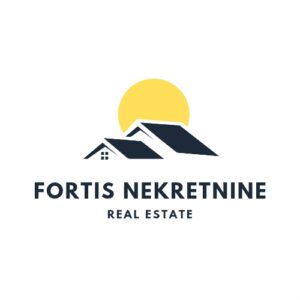
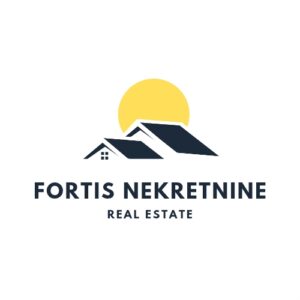
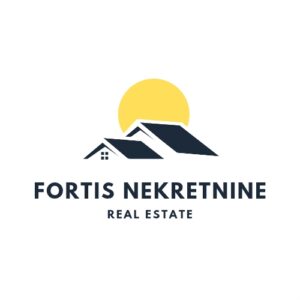
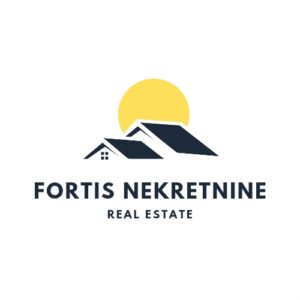






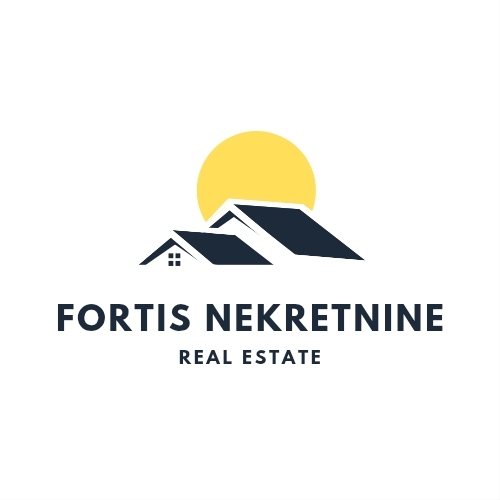
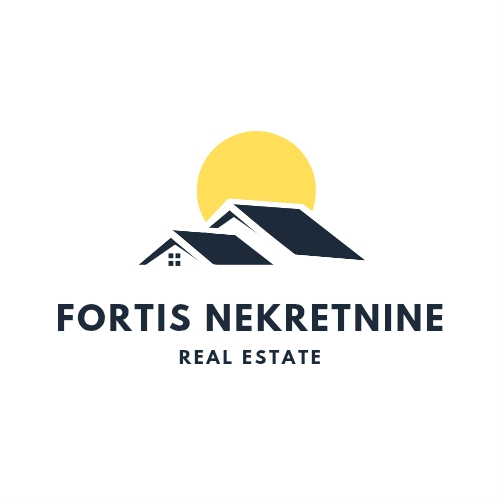
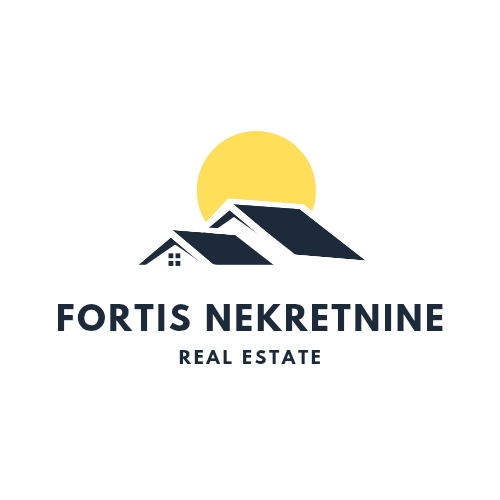
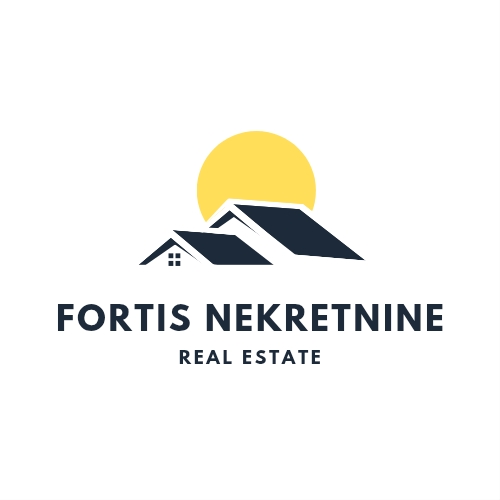



+ There are no comments
Add yours